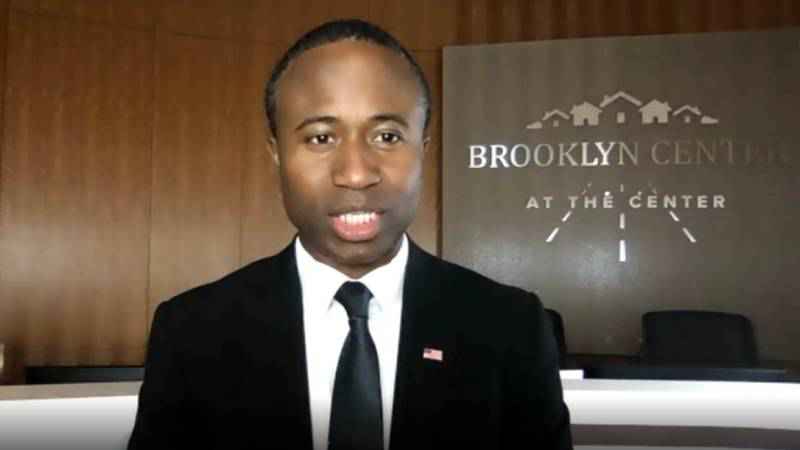Brooklyn Center Mayor wants AG’s office or special office to oversee all police killings
[anvplayer video=”5031767″ station=”998122″]
Attorney General Keith Ellison’s office will prosecute former Brooklyn Center police officer Kim Potter’s case. She is charged with second-degree manslaughter in the death of Daunte Wright back in April.
Following the death of George Floyd, the Anoka, Dakota, Hennepin, Ramsey and Washington county attorneys agreed last June they would not review or prosecute deaths from police use of force in their own jurisdictions. The Hennepin County Attorney’s Office followed this protocol, and as a result, Washington County Attorney Pete Orput charged Potter.
5 EYEWITNESS NEWS learned from the Attorney General’s Office on Friday that Orput returned the case to Hennepin County Attorney Mike Freeman, who requested Attorney General Ellison take over.
“Daunte Wright’s death was a tragedy,” Ellison said in a statement. “I promise the Wright family and all Minnesotans that I will handle this prosecution responsibly and consistent with the law, and that I will be guided by the values of accountability and transparency. No one, however, should expect this case will be easy to prosecute.”
Brooklyn Center Mayor Mike Elliott told us he learned of the news just before it was released to the public.

[KSTP]
“Attorney General Keith Ellison and his office, I think, are the most qualified office in the state of Minnesota to really oversee this case,” Elliott said. “I think this change really brings about an added level of trust for folks in the outcome.”
The decision comes after weeks of protests outside of Orput’s house. Activists have called for higher charges, including third-degree murder.
“I think it’s not only clear to me, I think it’s clear to Minnesotans of all different backgrounds: We absolutely have to have the Attorney General’s Office or a special office set up in the state oversee all of these police-involved killings,” Elliott said.
Ellison takes over the case exactly one month and one day after the jury reached a verdict in the Derek Chauvin trial. The attorney general successfully prosecuted that case. Chauvin was convicted of all three charges against him, including second-degree murder.
In an interview with the Washington Post on Friday, Ellison said he will not use the Chauvin case as a template.
“Cases are as unique as fingerprints,” he said. “All are different in many different ways, so our approach will be tailored to the case itself."
Assistant Attorney General Matthew Frank will supervise the case. As the manager of the office’s criminal division, he was a presenting attorney in Chauvin’s trial.
Ellison said, however, it’s unclear whether the same team of top prosecutors in the Chauvin case will return.
“Whether the team will shift from one case to another is really yet to be determined,” he told the Washington Post. “I know that more than just the Minnesota Attorney General’s Office has a thirst for justice, so if and when we need to reach out, I expect we’re going to have all the help we need.”
The resources available to the attorney general’s office will give the prosecution an advantage, according to Mitchell Hamline School of Law Emeritus Professor Joseph Daly. He spent years as a criminal defense attorney.
“I often thought that it was so unbalanced between the resources that the state has — almost unlimited resources when it comes to this — versus the kind of resources that I as a criminal defense lawyer had,” he said. “You could see during the Chauvin case, they could bring in anybody. They could find experts, many experts, and you’re always limited by a cost reality when you’re defending in a criminal case.”
Daly believes this will be a much more challenging case for the attorney general.
“This case is not going to be easy to prove,” he said. “The potential jurors will feel very differently about Ms. Potter than Mr. Chauvin, there’s no nine-minute videotape showing a cold hard stare.”
Earlier this week, Judge Regina Chu said she’d like to start the trial in December.
“For sure I think both sides will be looking for experts involving Tasers and also the kind of training they receive to differentiate between a Taser and a gun,” Daly said. “The defense is going to have to find an expert to talk about how is it possible that a Taser and a gun could be mistaken by someone who is a training officer like she is, that has so much experience. I suspect they can find an expert. In some ways, it’s a products liability problem. Does a gun feel the same as a Taser, or too similar to a Taser?”
The prosecution will have to prove she acted unreasonably, even for an accident, based on her training, according to Daly.